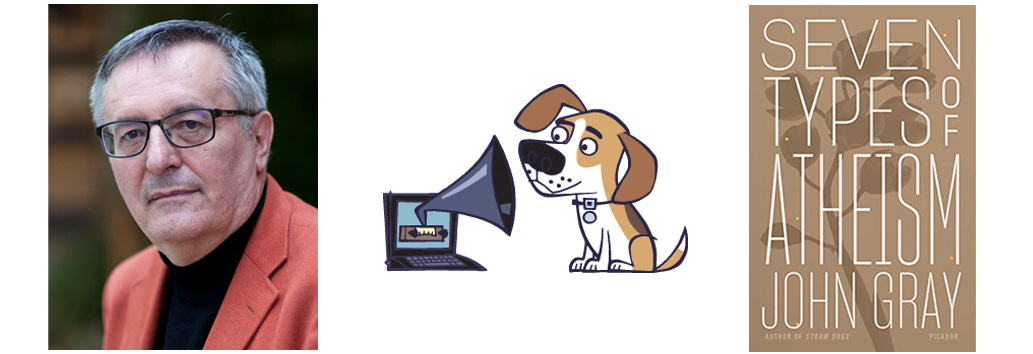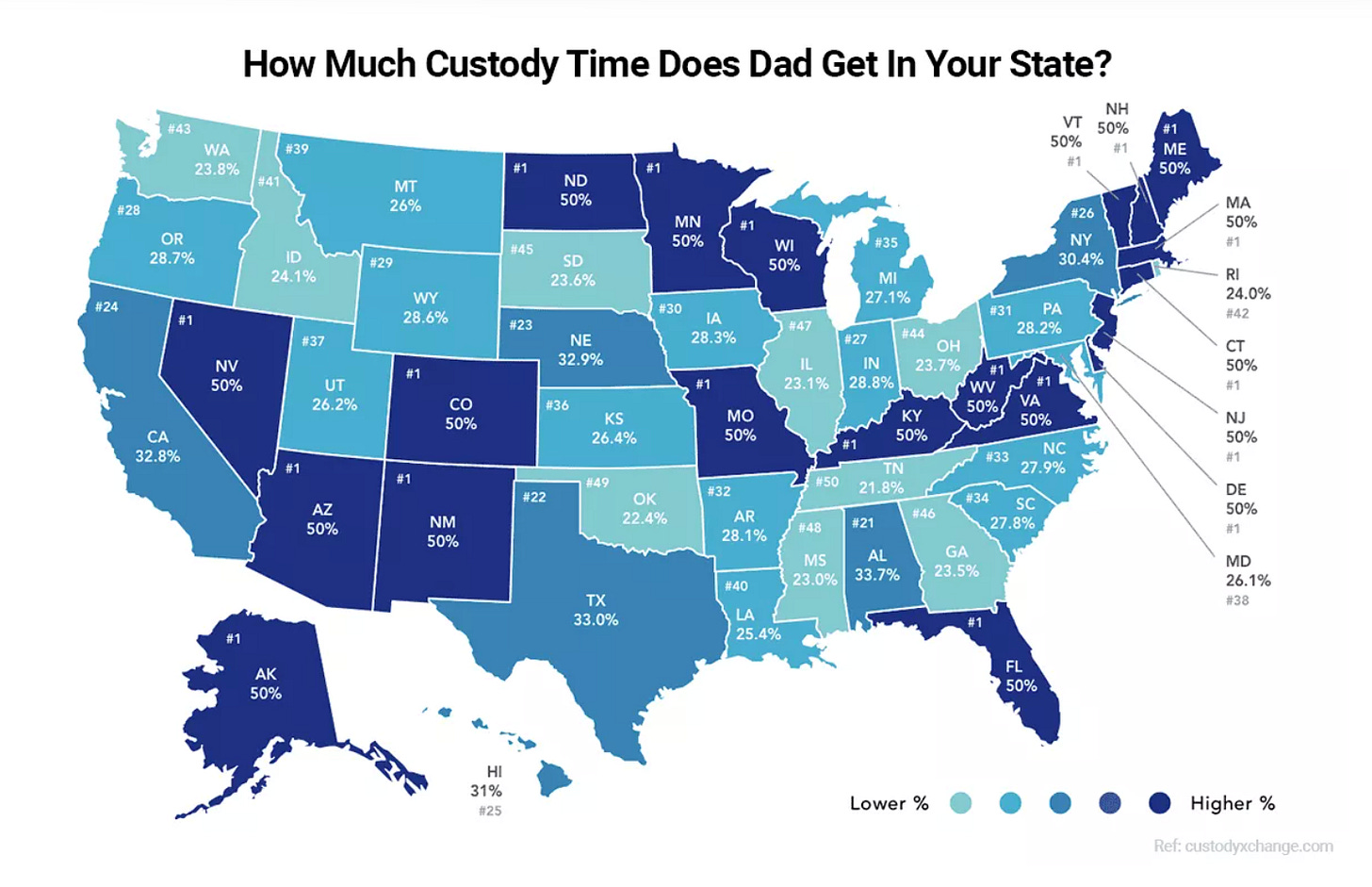John Gray is a political philosopher. He retired from academia in 2007 as Professor of European Thought at the London School of Economics, and is now a regular contributor and lead reviewer at the New Statesman. His forthcoming book is The New Leviathans: Thoughts After Liberalism. I regard him as one of the great minds of our time, and this is one of my favorite pods ever.
You can listen to the episode right away in the audio player above (or on the right side of the player, click “Listen On” to add the Dishcast feed to your favorite podcast app — though Spotify sadly doesn’t accept the paid feed). For two clips of our convo — how smug liberalism led to Trump and Brexit, and why we shouldn’t treat religion as intellectual error — pop over to our YouTube page. Read the transcript here.
Other topics: the Judeo-Christian roots of liberalism; why Catholics never supported eugenics; the genius and licentious life of Michael Oakeshott; how Thatcherism and Reaganism turned into “inverted Marxism”; John’s loathing of the “indifference to economic casualties” (e.g. Hillary’s “deplorables”); his opposition to Fukuyama; his atheism and taking on the New Atheists; Blair and the Iraq War; the liberal case for border control; the dangers of producing too many elites; Silicon Valley’s obsession with eternal life; anti-wokeness in France; how Trump predicted Germany’s bind over Russian energy; the disintegrating support for the war in Ukraine; reporting on the Holodomor; Fox News and Dominion; and how the gains of Western civilization could ultimately be saved by non-Westerners.
Next week is Cathy Young to discuss Ukraine and what do to about CRT in public schools. Browse the Dishcast archives for an episode you might enjoy (the first 102 episodes are free in their entirety). If you missed last week’s transcript with Glenn Loury, it’s here for the reading.
A listener loved last week’s episode with Aurelian Craiutu on the need for moderation in today’s politics:
I listen to the Dishcast every Sunday on my ten-mile run — this time in the 15-degree Upper Michigan winter, which I didn’t even notice because I was so absorbed with your conversation with Craiutu. I learn something with every episode, but I have to say that this episode fed my soul like no other.
I have been a reader of yours since the late ‘90s. The Conservative Soul cemented my fandom of your work. I have listened to your conversations with all sorts of strident philosophers — Carl Trueman, Yoram Hazony, Matthew Rose, Cornell West, etc. I am so grateful for your civil discourse with all corners of the political spectrum, but I occasionally become frustrated with your occasional quest for “the answer” — through religion, through psychedelics and through politics. I kept yelling at you in my head that you are getting away from your own conservative soul!
But your episode last week was one of my absolute favorites. Craiutu’s words on moderation went straight to my heart. I am immediately ordering everything he has written. I actually feel more emotional satisfaction from moderation! Why must there be one answer in any realm? Why can’t we all be searching for answers and living our lives, enriching each other? Your affirmation of the eternal conversation among humans is honestly something close to my own religion. This is why I love the Dish. Don’t ever stop seeking.
In my recent convo with Jill Filipovic on feminism and abortion, the subject of child custody came up. Here’s the exchange:
Me: Currently the law is overwhelmingly in favor of mothers having custody of children. And fathers have a helluva time —
Jill: But that’s actually not true. Maybe how it plays out in courts. But the laws on custody are gender-neutral.
Me: I don’t think you’ll find that’s the case. It’s about the best interests of the child, which is always assumed to be the mother. The mother’s custody comes first.
Jill: Right, but the law — and maybe we’re talking past each other. As far as I know — and look, I’m not a child custody lawyer — but as far as I know, the legal standard in most places is that the best interests of the child should dictate custody.
Me: And that’s almost always understood to be the mother’s access comes first.
Jill: But that’s not necessarily — that doesn’t mean that’s the law. I am for the current legal standard, which is that you’ve got to put the best interests of the child first. Judges and folks who advocate for children are then looking at what’s the whole family dynamic. And if the reality of the whole family dynamic is that the father is absent or abusive or is not the primary caregiver for the children, then I understand where courts and judges get to the conclusion that the best interest of the child is to keep them with their primary caregiver.
I don’t think that that reflects an inequity in the law; I think it reflects an existing cultural and familial imbalance. I don’t think that’s the law discriminating against men. The law on its face is in fact gender-neutral. If it’s being interpreted in a way that reflects back at us existing gender inequities, I don’t find that that surprising.
A listener chimed in last week: “As a lawyer who has handled family law cases, it is absolutely NOT TRUE, as you confidently insisted, that custody of children is ‘almost always’ awarded to mothers. That may have been largely true once, but it’s definitely not the case anymore.”
To get some data on the complicated question, here’s a legal website that compiled a bunch of stats:
One parent may be granted sole custody (or full custody), or both parents may have custody under a joint custody agreement. Courts attempt to determine child custody based on what is in the “best interests of the child.” The good news is, parents settle 90% of child custody cases without a judge’s ruling. …
As of 2018, nearly 4 in 5 custodial parents were mothers (79.9%). But the statistics go deeper than that: Not only does the mother get custody of the children more often, the parents agree in more than half the cases (51%) that the mother should have custody.
The number of children living with both their parents has fallen significantly, from 85% in 1968 to 70% in 2020. That has affected both the number of children who live only with their mother and the number who live only with their father:
About 7.6 million (11%) children lived with their mother only in 1968 compared with 15.3 million (21%) in 2020.
The number of children living with their fathers only more than quadrupled from 0.8 million (1%) to 3.3 million (4.5%) between 1968 and 2020.
On the national average, a female parent is granted around 65% of custody time, whereas a male parent receives around 35%. …
While parents often agree that the mother should receive primary custody of a child, the percentage is not as high as the percentage of mothers who do get custody. This indicates that many divorced fathers who would prefer to have custody of their children are not actually awarded custody. Does this indicate gender bias?
According to a study by the American Psychological Association, gender stereotypes may indeed play a role in child custody decisions. In this study, good mothers received greater custody allocations than good fathers did in the United States, Brazil, and Argentina.
Follow-up studies linked maternal primary custody to the propensity to ascribe “warmth-related traits” such as generosity, trustworthiness, and friendliness to mothers. There is also a tendency to believe that mothers have more time to spend with their children. This is, however, less often the case with the rise of two-income families.
Also, the division of time between custodial parents varies by state — but nowhere does a father’s time exceed 50 percent:
Here’s another listener on the episode with Jill:
I respect the desire to have control over one’s own body. (BTW, I would be curious to hear Filipovic’s views on vaccine mandates.) I think people who start from there regarding abortion begin from a reasonable position. The problem is that they stop where they begin ... because they have to.
I am convinced that the majority of people who are pro-choice/pro-abortion “rights” are psychologically incapable of changing their minds and truly thinking about the core issue at hand. They have either had abortions themselves or know/love a wonderful person who had an abortion. Therefore, for them to change their minds and acknowledge and accept that abortion is the murder of an innocent child would simply be too much for them to psychologically bear. Thus, they MUST fight tooth and nail from even entertaining that possibility. It’s why they deflect on the issue of abortion and want to talk about everything BUT the act itself. To acknowledge the truth would be psychologically devastating.
It may be centuries away, but the day will come when it is acknowledged that abortion is one of history’s greatest horrors.
This next listener dives into motherhood and feminism:
Thank you for the wonderful podcast with Jill Filipovic! It was so interesting.
I also chuckled to hear two childless commentators debate gender roles in parenting. At one point in the conversation, you proposed imagining what it’s like to be pregnant and have a baby. So let me share my experience of becoming a mother, since I've now done it three times — I’m mom to one stillborn baby as well as a very active 3-year-old girl and 18-month-old boy.
People often say a mother has an “indescribable love” for her infant. That’s so vague! For me, having a newborn is as if a critical part of my body (let’s say the liver) suddenly separated from my body and needed my constant care and attention. Caring for the baby is an absolute compulsion — it’s as if the baby is a part of me, and its hunger, discomfort, and sleeplessness drive me to meet its needs. It feels as though I will simply die if I don’t attend to the baby right away. It’s not that I want to nurture the baby, but rather that I MUST.
This enmeshment subsides as the child matures, but it’s there for at least the first year of life, if not longer. My husband does not have the same visceral connection to the baby’s needs.
The other revelation since having children is I feel very spiritually connected to my mother, grandmother, and more ancient foremothers. I can envision the torch being passed forward one day through my daughter and other future generations. I feel profoundly part of the circle of life in a way that never occurred to me prior to motherhood.
Beyond pregnancy, there are some key biological ways that being a mom is different from being a dad:
Listen to this episode with a 7-day free trial
Subscribe to The Weekly Dish to listen to this post and get 7 days of free access to the full post archives.














